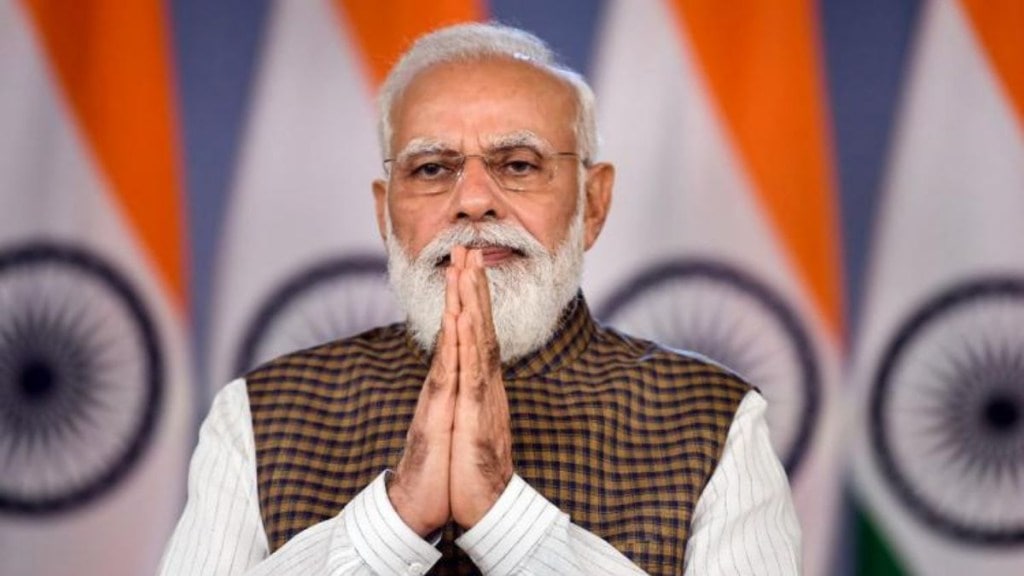In light of the Israel-Hamas war Prime Minister Narendra Modi engaged in a telephone conversation with Iranian President Ebrahim Raisi. During the discussion, Prime Minister Modi expressed concerns about terrorist incidents and civilian casualties.
The Iranian leader urged the Indian government to mediate and contribute to the resolution of the conflict.
In a statement on social media, Modi expressed the importance of addressing the serious concerns of terrorist incidents, violence, and civilian casualties in the West Asia and Israel-Hamas conflict. He emphasized the need to prevent further escalation, ensure ongoing humanitarian aid, and facilitate the early restoration of peace and stability.
Both leaders reiterated the importance of preventing escalation, ensuring continued humanitarian aid, and early restoration of peace and stability, as confirmed by the Prime Minister’s Office (PMO).
The leaders also discussed the progress of the Chabahar port, a strategically significant location for India situated in the Sistan and Baluchistan Province on the Makran coast. Modi welcomed the positive developments in bilateral cooperation, particularly regarding the Chabahar port.
Iran Seeks India’s Mediation
President Raisi conveyed to Prime Minister Modi that Tehran supports global efforts aimed at an immediate ceasefire, lifting the blockade, and providing relief to the oppressed people of Gaza. He emphasized that the ongoing atrocities in Gaza have ignited global outrage, and if the situation continues, it could have repercussions beyond the region.
Raisi also invoked India’s history of fighting against Western colonialism and its role as one of the founders of the Non-Aligned Movement. He urged India to leverage its capabilities to help end the Israeli bombings in Gaza.
India’s Stance at the UN
The renewed diplomatic efforts with stakeholders in the Israel-Hamas conflict come after India abstained from the UN General Assembly vote on October 28. The resolution called for an immediate humanitarian truce in the Israel-Hamas conflict, aiming to halt hostilities.
During the UN General Assembly vote, India joined several other countries in abstaining, including Australia, Canada, Germany, Japan, Ukraine, and the UK.
President Raisi’s Views
In his conversation with PM Modi, President Raisi strongly criticized the Israeli actions, describing the bombing of hospitals, schools, mosques, churches, and residential areas as unacceptable from a human perspective. He stressed the legitimate right of Palestinian resistance groups to confront the occupation of the usurping Zionist regime and called on all countries to support the Palestinian people’s struggle for freedom from oppression.
Furthermore, President Raisi criticized the United States, stating that the continuous killing of the Palestinian people has enraged free nations worldwide, warning of potential consequences beyond the region. The statement from Iran suggested that the telephone conversation was initiated by the Indian side.
Balancing Relations
India has maintained productive relations with both Iran and Israel over the years, with the collaboration on the Chabahar port serving as a notable example. The leaders of India and Iran positively reviewed progress in bilateral cooperation during their recent conversation, highlighting the significance of the Chabahar port.
Their previous meeting during the 15th BRICS summit in Johannesburg also demonstrated India’s role in intra-BRICS dialogue on the Palestine issue. The Iranian Foreign Minister, Amirabdollahian, has called for intervention by BRICS member states to halt Israeli strikes on Gaza.
India’s Approach
India has consistently avoided letting extra regional factors influence its relationship with Iran, particularly concerning the Chabahar port. In August, both nations agreed to exclude commercial foreign arbitration to resolve disputes between the port’s operators and users, paving the way for a potentially long-term agreement.
Iran & BRICS
The two leaders previously met on the sidelines of the 15th BRICS summit held in Johannesburg from August 22-23. The BRICS grouping, which includes India, welcomed Iran as a member state, demonstrating India’s active role in fostering intra-BRICS dialogue. The recent telephonic conversation between Prime Minister Modi and President Raisi indicates the potential for coordinated efforts within BRICS on addressing the Palestine issue.
Diplomatic Engagements
On November 3, Prime Minister Modi engaged in discussions with the President of the United Arab Emirates, Sheikh Mohamed Bin Zayed Al Nahyan, and UK Prime Minister Rishi Sunak, emphasizing the ongoing Israel-Hamas conflict. Earlier, he spoke with the President of Egypt, Abdel Fattah El Sisi, the President of the Palestinian Authority, Mahmoud Abbas, and the Prime Minister of Israel, Benjamin Netanyahu.
Arab states in the region have been actively pursuing diplomatic efforts and held a meeting in Amman, where they called for an immediate ceasefire in Gaza.
